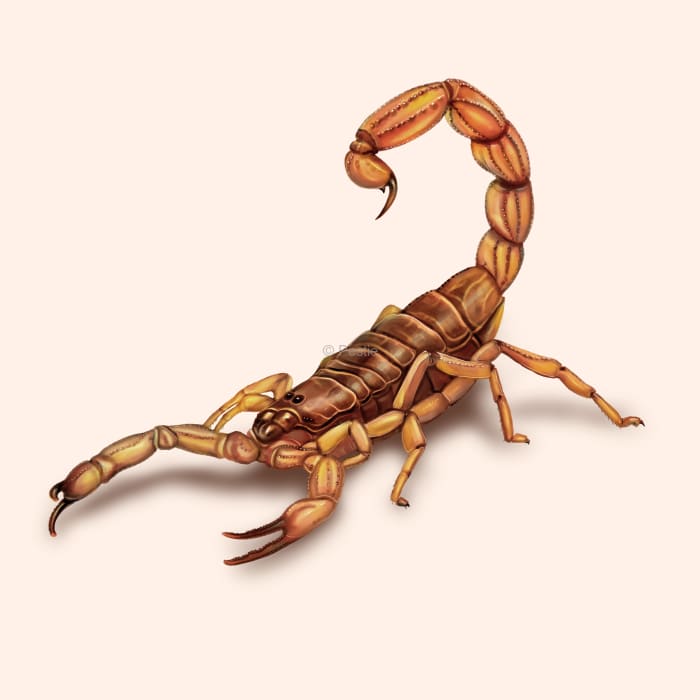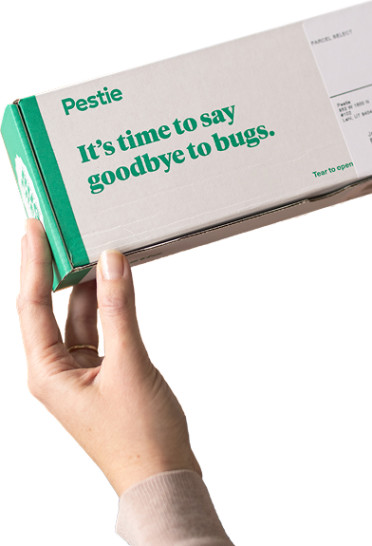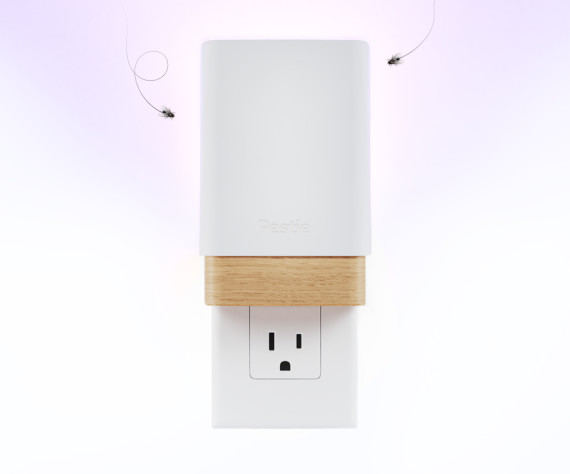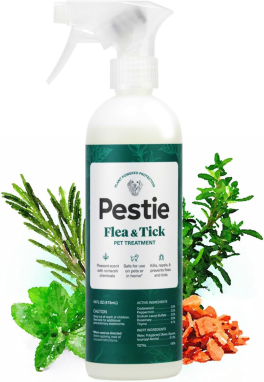How to identify and get rid of striped bark scorpions

Their sting is worse than their bark
More than a million people are stung yearly, and sometimes, that can happen in our safe and cozy homes.
Striped bark scorpions are the most common species of scorpion in both the Southwestern and Central regions of the United States. While they might look a bit scary, they are interesting little creatures that play a role in our ecosystem.
They prefer warm, dry, rocky areas where they can hide during the day. Homes often make a good place to hide, and scorpions will often find their way inside in search of food and shelter. They can also hide in garbage, wood, or yard waste piles.
At night, the striped bark scorpion becomes more active, searching for food or mates. They are more social than other scorpions and can be found in pairs or groups.
Their sting is what causes most of the concern. While it can be painful and venomous, the sting usually doesn't cause any life-threatening symptoms. The biggest issue would be if you had a serious allergic reaction to the sting.
How to identify striped bark scorpions
The striped bark scorpion is slightly more than 2 inches long and is best identified by its two long stripes running along its back. They also have long, slender pincers and, of course, their long curled tail that ends in a sharp stinger.
These critters like to hide, so if you start seeing them around your house or yard, especially at night, there might be more hidden away. Their presence can also be indicated by finding their molten exoskeletons, as scorpions shed their skin as they grow. If you're finding these signs, it's a good hint that striped bark scorpions are around.
How big are striped bark scorpions?
Striped bark scorpions range between 2-3 inches in length.
What other pest looks like a striped bark scorpion?
You might mix a striped bark scorpion with other less commonly found scorpions. Look for the two long stripes on their back for a solid identification.
Where do striped bark scorpions live?
Striped bark scorpions are commonly found in the southern and central United States, especially in Arizona, Texas, Missouri, Arkansas, and Louisiana.
How to get rid of striped bark scorpions
Here are a few things you can do to prevent scorpions from getting inside your house:
- Remove hiding spots: Clear debris, logs, and rocks from your yard.
- Seal entrances: Make sure windows, doors, and any cracks in the foundation are sealed to prevent them from entering the home.
- **Use glue traps:**Place them along walls and in corners to catch wandering scorpions inside the house.
- Put shoes up: Keeping your shoes off the ground can keep scorpions from crawling inside them.
- Eliminate other pests: Remove any other pests that can be food for scorpions.
- Try Pestie: Use a perimeter spray to keep scorpions out of your home, like the DIY, pro-grade solution Pestie offers!
Treat striped bark scorpions with Pestie
If you're still having trouble keeping striped bark scorpions away, the best option is to use a pro-grade, effective pest control solution like Pestie.
Pestie is a do-it-yourself pest control solution that's specially designed to keep striped bark scorpions and other pests away from your home.
With Pestie, you can rest easy knowing that your living space is protected and free of creepy crawlies. And the best part? It's designed for people, pets, and the planet, so you can say goodbye to harsh chemicals and hello to peace of mind!
- Save hundreds compared to traditional annual pest plans
- People, pet, and planet-friendly
- Pro-grade customized formulas
Quick facts
How dangerous are Striped Bark Scorpions?
Medium danger risk
Their sting can be painful, similar to a wasp sting, and can cause reactions in sensitive individuals. Still, it is generally not considered life-threatening to humans without an allergy to scorpion venom.
- Scientific name
Centruroides Vittatus
- Colors
Yellowish brown
- Life span
3-7 years
- Diet
Insects, spiders, small mice and lizards
Scorpions glow under a black light! So, if you are worried about scorpions in your yard at night, shine a blacklight on the ground to look for any wandering scorpions.








